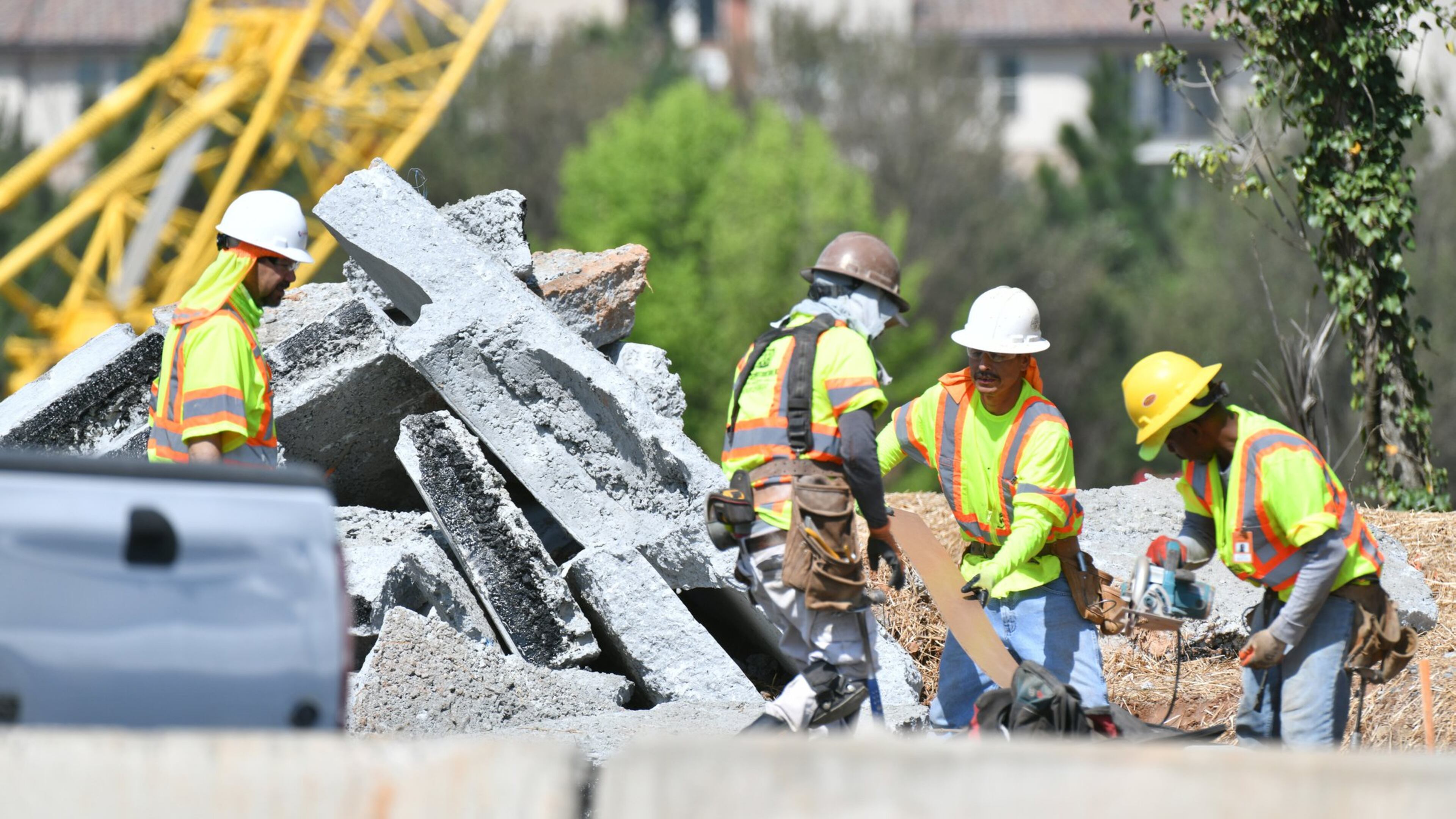With traffic down, is now a good time to fix the potholes?

Filling potholes and repairing sewer lines are necessary — but objectively unsexy — facets of local government. With so many people staying home and off the roads due to the coronavirus outbreak, though, some believe there may be no better time to get that work done.
State and local government officials said infrastructure projects are continuing, and in some cases accelerating, in the midst of the pandemic — an unprecedented occasion where neighborhood streets and major interstates alike are free of their usual congestion.
“It’s a little bit easier out there. You can get through a work zone quicker, you can get materials to a work zone quicker,” said Sam Durrance, the superintendent for the city of Tucker, who oversees public works contracts. “Traffic control can really slow down a project.”
Governments across metro Atlanta said they will continue providing essential services to residents, including water, sanitation, police and fire. On a call Monday updating residents about Atlanta’s coronavirus response, Mayor Keisha Lance Bottoms said construction projects are also considered “essential,” and public works and watershed employees will continue to complete city projects.

On a state level, large interstate projects, including the reconstruction of the I-285/Ga. 400 interchange, are continuing as planned, the Georgia Department of Transportation said.
Department spokeswoman Natalie Dale said last Wednesday that statewide interstate highway traffic was down 22% for cars, and semi truck traffic carrying freight was up 5%.
“Overall takeaway is that we’re doing what we need to be doing,” Dale said. “People are staying home, and freight is moving.”
DeKalb County has pumped millions into overhauling its aging sewer and water system over the last several years — work that sometimes involves shutting down busy thoroughfares. The county is also a few years into a road paving program that aims to mend hundreds of DeKalb’s most pothole-heavy streets.
Rick Lemke, the county’s public works director, said road and sewer projects are proceeding at a regular pace, but workers are safer while on the job because there are fewer cars speeding past them.
“We’re still doing our pothole patrol,” Lemke assured.
DeKalb’s fleet management division, which does maintenance on county-owned vehicles, has been able to catch up on more repairs while county employees are working from home. And it’s become easier for garbage trucks to take solid waste to the landfill, Lemke said.
“They don’t have to fight that traffic,” he said.
Durrance said Tucker currently has four crews repaving streets around the city, and he visited several of the sites Monday morning. With an assist from the recent dry weather, things are running smoothly. Just last Thursday, the city hosted a ribbon-cutting to kick off this year’s road repaving efforts, the result of a $4.4 million contract that will repair 79 roads.
“The guys are feeling relatively confident that they’re gonna get some things done,” Durrance said.
Many on social media have remarked on the lack of cars on the roads.
Our crews are still out filling potholes, paving roads, replacing water and sewer lines, building sidewalks and more. We're doing all we can to continue providing essential services to our citizens. https://t.co/loQPIs33OK
— DeKalb County, GA (@ItsInDeKalb) March 25, 2020
“This the perfect time for Atlanta to fix them potholes,” one person wrote on Twitter.
In response to a tweet pointing out that there appear to be more projects happening now, DeKalb County wrote that crews are "still out filling potholes, paving roads, replacing water and sewer lines, building sidewalks and more."
Josh Rowan, the commissioner of Atlanta's newly formed department of transportation, said in a tweet Saturday that the city is "going to be focusing on specific corridors while we have the opportunity." According to the city's public works department, crews are doing road work on popular arteries around the city including Piedmont Avenue, Lenox Road and Metropolitan Parkway.
The Atlanta Department of Watershed said in a statement that construction projects have remained on track, and the reduction in traffic is “helpful to our ability to respond faster to service calls, which have remained relatively steady and at normal levels.”

Durrance said work crews in Tucker have been encouraged to practice social distancing and personal sanitation guidelines when possible; a paving crew has a minimum of 13 people. So far, he said, there have been no major reductions in the workforce among city contractors.
The current ideal conditions for these projects won’t last forever. Future work around the region could be greatly affected by the outbreak, as revenue local governments need to pay for the work is expected to drop due to the lagging economy.
During a City Council meeting in Dunwoody last week, Assistant City Manager Jay Vinicki pointed out that paving projects are paid for using the city’s SPLOST funds, which are supported by sales taxes. With many stores closed and residents staying at home, Vinicki said the sales tax revenue “will get hit immediately.”
“As we get less money,” he said, “we will do less projects.”
Staff writer David Wickert contributed to this report.

